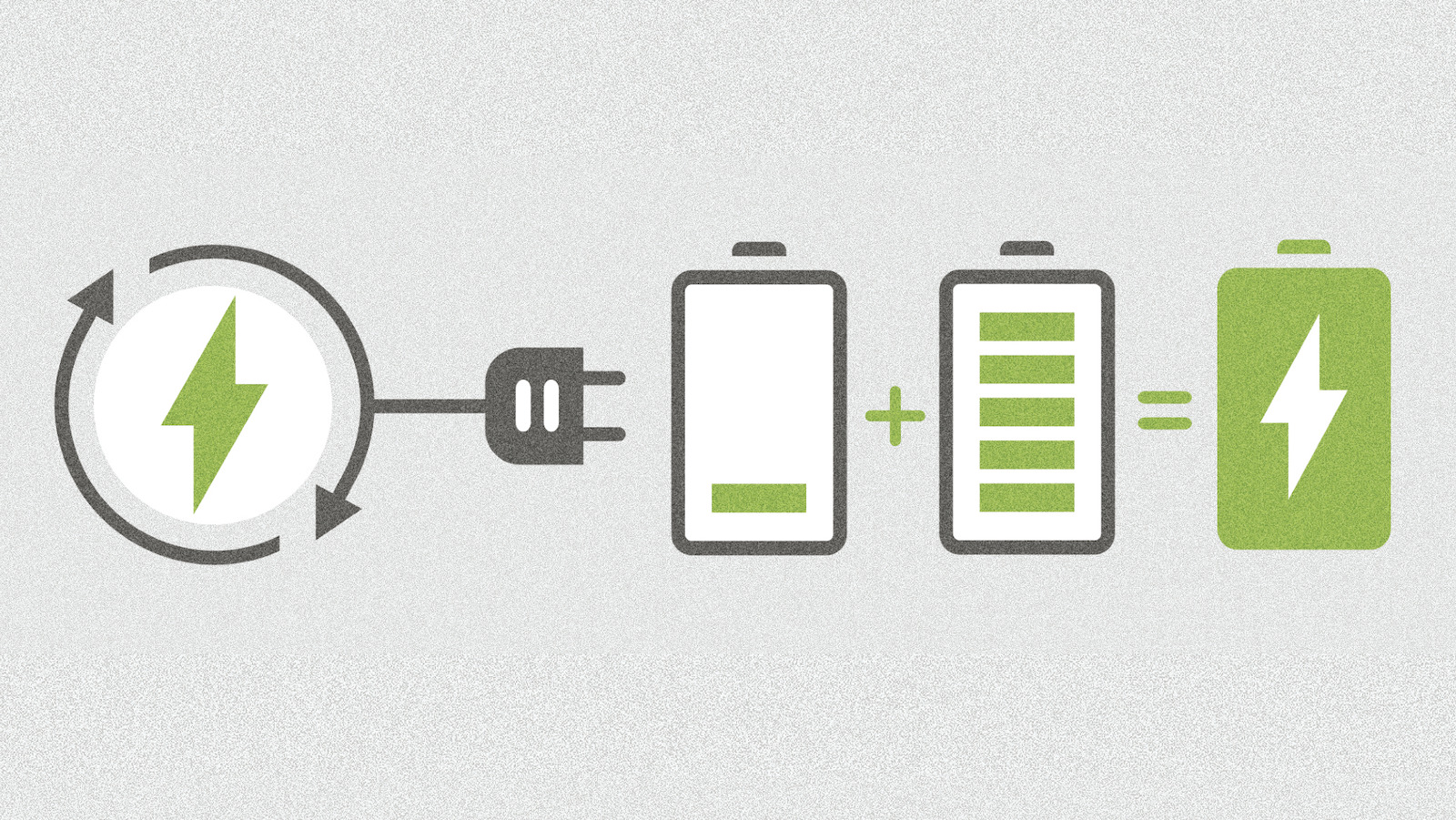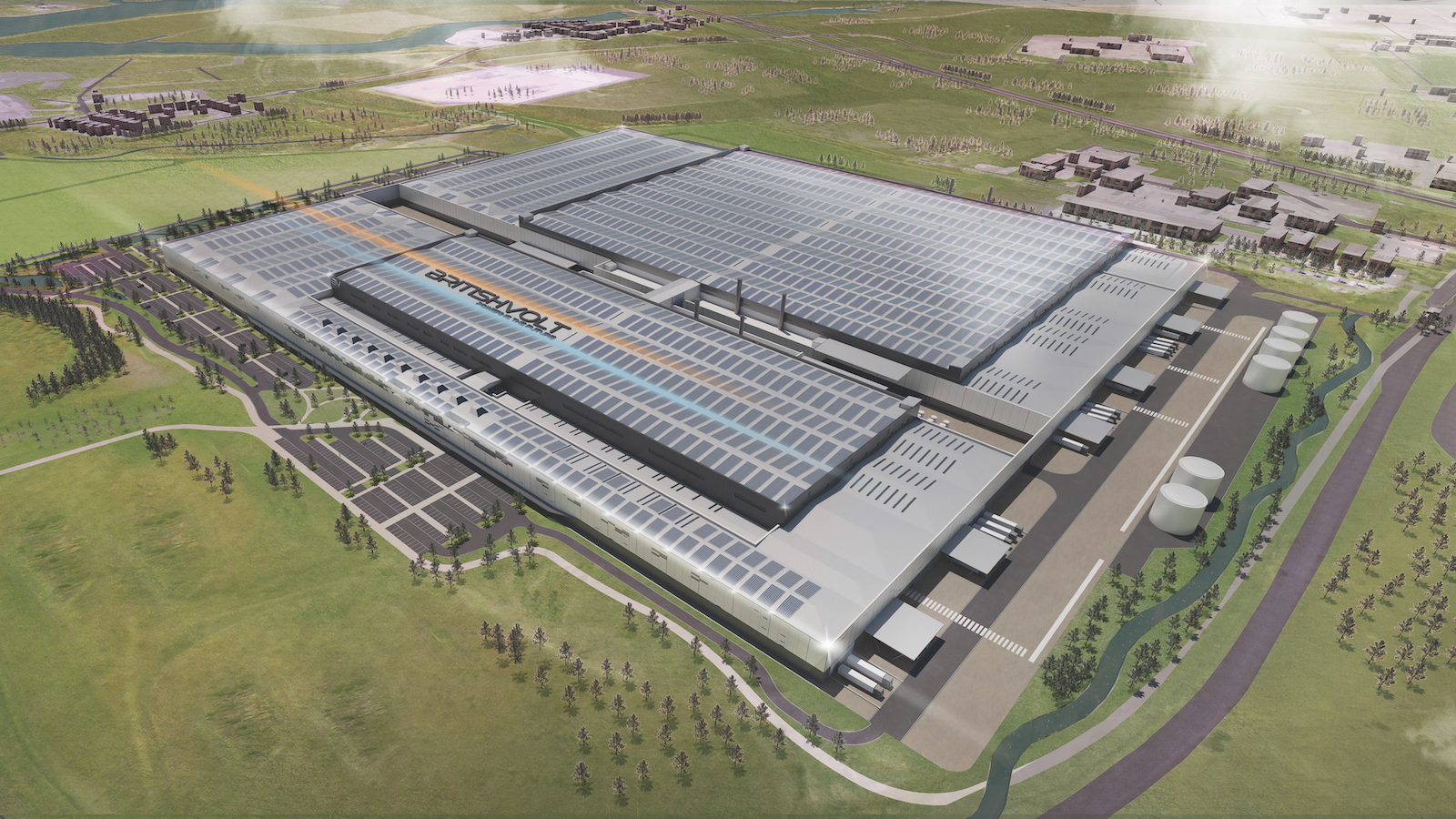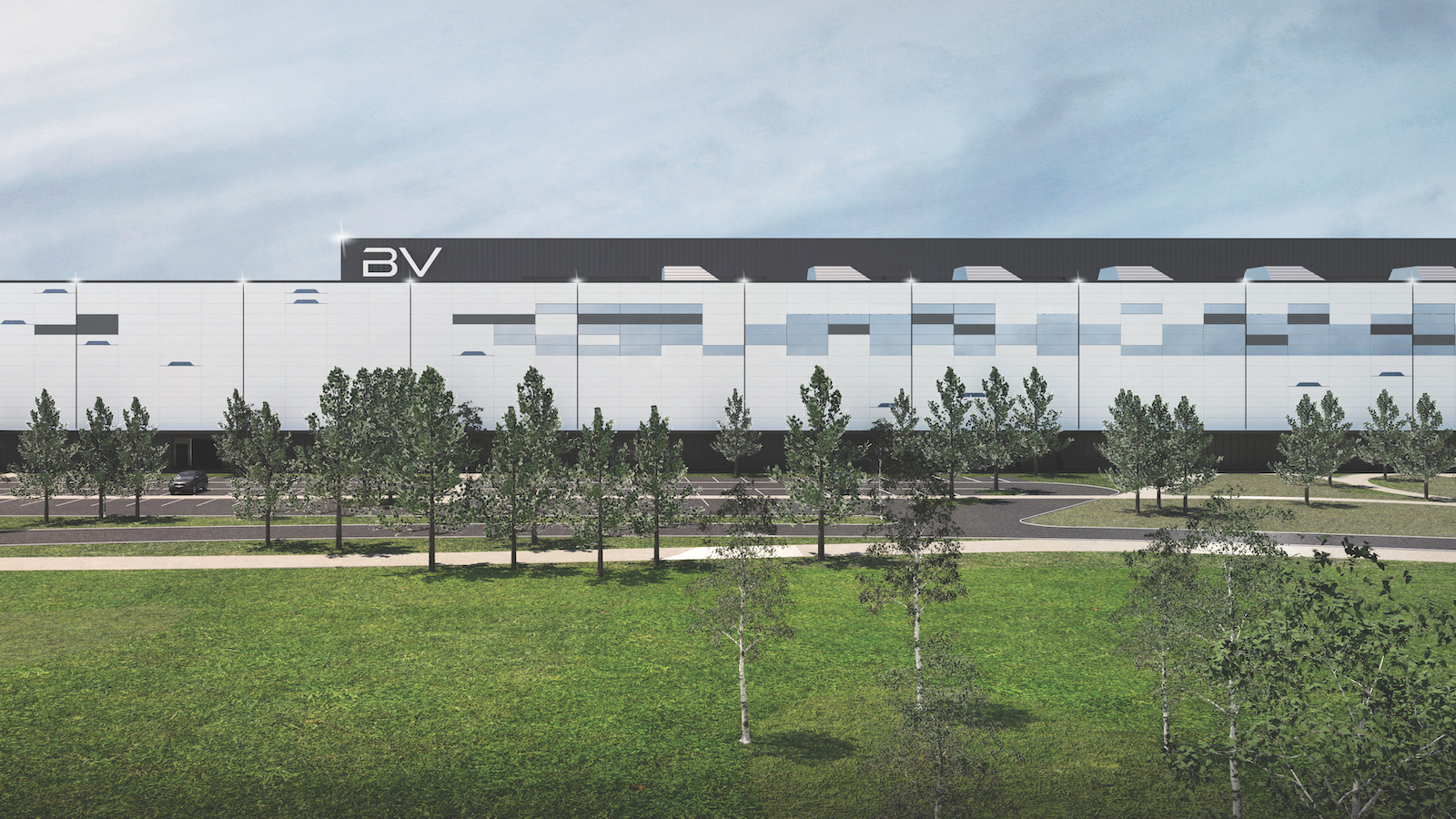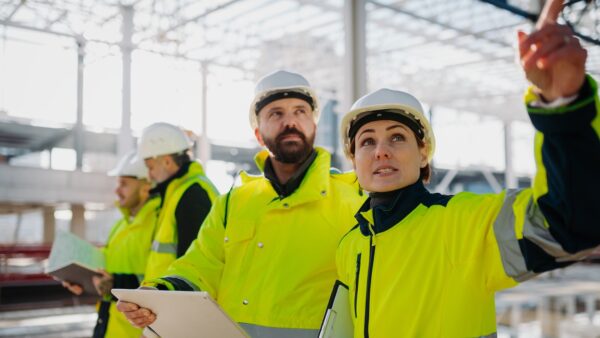As ISG gears up to start construction of one of Europe’s largest buildings, Britishvolt’s lithium-ion battery factory in Blyth, it has set its sights on creating a lasting legacy for skills in the North East. Neil Gerrard reports

If you were to speed past the enormous lithium-ion battery ‘gigaplant’ factory that contractor ISG is building for Britishvolt in an electric car at 60mph, it would take a full 12 seconds.
The £2.6bn facility in Blyth, which will produce 300,000 lithium-ion batteries for vehicles a year by 2027, is said to be the largest industrial investment in the area since Nissan’s Sunderland plant in the 1980s. The building, which occupies a 95ha site, will become Europe’s fourth largest when it is complete.
Its construction is expected to take just 24 months, with the plant scheduled to become operational in 2024. It will require 31,000 tonnes of steel and will contain around 26,000 sq m of rooms that need to be cleaner than an operating theatre and drier than the desert to meet the environmental requirements for the manufacture of batteries for electric vehicles.

“The biggest challenge we have got is that we have got to build a factory that can house whatever the battery technology needs to be for a customer who is responding to a rapidly evolving market,” says Peter Millett, managing director engineering services – technology at ISG.
ISG is enthused rather than daunted by the project, however, and none more so than Sinéad Moloney, who lives in Northumberland and has recently joined ISG as social value manager. The business is also encouraging the construction workers it needs to build the plant to come to the area – not just for the duration of the project but also to stay and help build the local skills pool and the economy.

“With the demise of the UK coal-mining industry, Northumberland and Tyneside have been through some really tough times. But what we are seeing now is a rebirth”
Moloney says: “I moved to Northumberland 30 years ago because I loved the people and the environment. For the past 12 years I’ve worked in social value roles for local authorities and wasn’t looking for a change. However, when I saw the ambition of Britishvolt and ISG, I simply couldn’t bear the thought of anyone else doing such a pivotal role in my local community.”
She adds: “With the demise of the UK coal-mining industry, Northumberland and Tyneside have been through some really tough times. But what we are seeing now is a rebirth. Britishvolt’s project is going to supply 2,500 high-quality jobs to the local economy.”
Working in partnership with Britishvolt, which is placing a significant emphasis on its ESG (environmental, social and governance) agenda, ISG is working to develop a specific plan of action when it comes to engaging the local community in respect of training and employment opportunities.
Moloney, in her role as a locally based social value manager, is working with Millett to develop ISG’s own ESG plan as part of the preconstruction process. In addition to ensuring a high proportion of local employment on the project, ISG aims create 50 apprenticeships, with 25 on existing schemes and 25 new apprenticeships across the three phases of the project up until 2027. It will also offer 100 work experience placements per year supported by ISG and its supply chain.

It isn’t just those people from a traditional construction background that ISG will need for its work on the gigaplant. Its size and complexity means that the business also requires the expertise from people outside the sector, as Millett explains: “Beyond the traditional construction skills we have focused on having a team that has knowledge of the manufacturing process. We have employed people from the automotive and semi-conductor industries.”
Pop-up rail terminal
Beyond fostering a nurturing environment for local skills, ISG is also conscious of its environmental commitments on the gigaplant project.
In addition to exploring schemes such as the non-use of single-use plastics on site, ISG plans to take advantage of the rail infrastructure already in place from the area’s
coal-mining days.
Millett explains: “There is a freight line to the port terminal that we intend to modify with a pop-up terminal. We are looking at bringing in the piling mat, the aggregates for the concrete, and sand by train.We may need as many as three full trainload deliveries a day to meet our demands at peak, which is a massive number of lorries off the road.”
Studies by ISG suggest that train deliveries will account for about 30% of the carbon footprint of the equivalent road delivery. Such initiatives will hopefully fire the imagination of the local community, says Moloney: “My non-construction friends are all asking me about Britishvolt; it is such a step change for the area.”
Integrated project delivery
ISG’s construction of Britishvolt’s gigaplant will see the contractor adopting the ‘integrated project delivery’ model that it has used successfully on its data centre projects in Europe. The model sees ISG collaborating with its client on an equal footing in a bid to make efficiency savings in the design and delivery.

“Manufacturing folk don’t recognise how construction is delivered when it comes to the contracting arrangements. A non-adversarial approach is key”
ISG’s Peter Millett explains: “Our pitch to Britishvolt was to be a construction partner that can sit within the client team and develop an integrated approach. It allows the client to shortcut the initial stages of the design process by getting us and our supply chain involved more quickly.”
ISG will keep in mind that the main objective of the project is manufacturing batteries. Millett says: “Manufacturing folk don’t recognise how construction is delivered when it comes to the contracting arrangements. A non-adversarial approach is key. We need to work to a building contract but we don’t need to ram it in somebody’s face every day of the week when the pressure is on to create batteries.”











